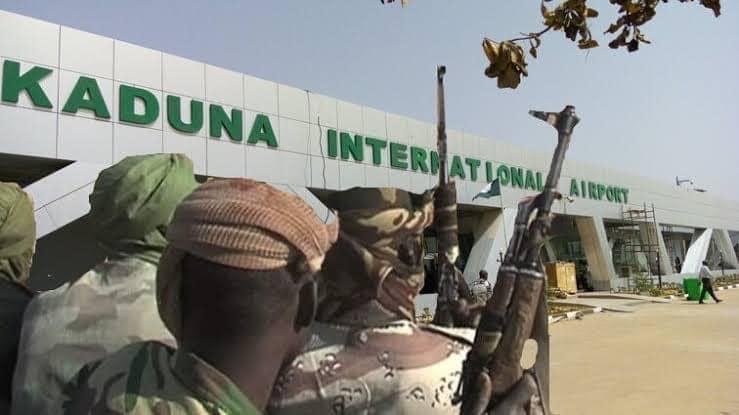Banditry in the country took a more dangerous dimension on Saturday as they took over the runway at Kaduna Airport forcing airline officials and passengers to scamper for safety.
It was gathered that the aircraft was scheduled for Lagos on Saturday, when the hoodlums stormed the runaway.
According to reports, a staff of the Nigerian Airspace Management Agency (NAMA) was shot and killed by the bandits.
The bandits presence prevented the aircraft which was billed to take off at 12.30pm
‘’As I speak to you now, there is already military presence to beef up security , though most of the staff are scared with the killing of the Nigerian Airspace Management Agency (NAMA) staff, the source told TRIBUNE.
As at the time of filing the report, more than 10 military trucks have been deployed to the airport to reinforce the security network around the airport.
It would be recalled, that last year, bandits stormed the staff quarters located within the vicinity of the airport and kidnapped 10 staff of FAAN and NAMA.
Also, the security agencies at the airport are yet to react at the time of filing the report.
Tribune/National Update


